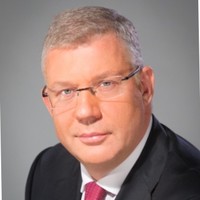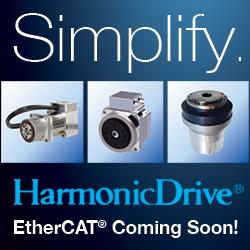Therapy with the suite of InMotion upper extremity products guides patients through specific tasks, aiming to improve motor control of the arm by increasing strength, range of motion and coordination.
Kindred Hospital Rehabilitation Services Purchasing Robots for Stroke Therapy
Eric Dusseux | BIONIK Laboratories
Please tell us a bit about BIONIK and its role in the Robotics Industry?
BIONIK Laboratories is a robotics company focused on providing rehabilitation and mobility solutions to individuals with neurological and mobility challenges from hospital to home. We have a suite of products in market focused on rehabilitating upper limb for patients of stroke and other mobility impairments, including our InMotion robotic systems for Arm, Arm/Hand, and Wrist.
Can you tell us about BIONIK's purchasing agreement with Kindred Hospital Rehabilitation Services and what it entails?
In the first phase, Kindred Hospital Rehabilitation Services purchased 21 units of our InMotion Arm robotic system. Under this purchasing agreement, Kindred will immediately begin installing InMotion robots in its existing inpatient rehabilitation hospitals and similar facilities throughout the United States. A second phase will see Kindred install robots in new inpatient rehabilitation hospitals and similar facilities over the course of the next four years.
Why did you choose Kindred for this partnership?
We chose Kindred for this partnership because it is a recognized growing healthcare leader, with a deep expertise in inpatient rehabilitation facilities in the U.S. - having 22 free-standing inpatient rehabilitation hospitals, and 98 hospital-based inpatient rehabilitation units - treating a large American population recovering from stroke and neurological injury. This is a tremendous opportunity for us to demonstrate the impact of BIONIK’s technology on a broader scale, and to further penetrate the U.S. healthcare and rehabilitation market while generating immediate revenue.
What can this kind of technology do for rehabilitation facilities and for patients?
Therapy with the suite of InMotion upper extremity products guides patients through specific tasks, aiming to improve motor control of the arm by increasing strength, range of motion and coordination. It also assists with the provision of efficient, effective, intensive sensorimotor therapy.
The InMotion Arm uses artificial intelligence to provide assistance as needed during physical therapy. Patients can achieve 600 to 1,000 recorded movements per session, as opposed to 30 to 60 recorded movements per session with human therapists only.
For rehabilitation facilities, evolving reimbursement models are underscoring the market opportunity for robotics in physical therapy. As value-based payment models become more common - as opposed to traditional fee-for-service models - providers are rewarded for delivering quality of care and better outcomes rather than quantity of care. We measure 200 times per second the position, speed and acceleration of the upper limb through multiple sensors. Based on the data and our AI, our InMotion robotic systems produce a report before and after each session, before and after discharge. The data demonstrates the benefit to the patients, a key report for the healthcare practitioners in their dialogue with the patients and with the payers.
What are some immobilities or damages that patients have suffered when they need such technology?
InMotion Arm therapy is primarily used to help patients regain mobility after stroke or neurological impairment. To put the need for this kind of therapy into context, the CDC reports that 795,000 strokes occur in the U.S. each year.
How widely adopted are BIONIK's robots in medical and rehabilitation facilities?
BIONIK Laboratories’ AI-powered medical rehabilitation robots are used in over 200 medical facilities and R&D centers worldwide.
Can you give us an idea of the purchase, maintenance and training costs involved with your products vs the payback?
Value-based payment models have the potential to upend traditional patient care and business models, according to Deloitte. Some health care organizations are actively preparing for the transition to Value-Based Care while others are still hesitating. Kindred is a company owned and operated by two private equity firms. Their decision to enter into a mult-year agreement with BIONIK directly supports their ability to provide enhanced patient outcomes while achieving a financial return on the investments made in our robotic systems.

About Eric Dusseux
Dr. Eric Dusseux is the CEO of Bionik Laboratories, Inc., a robotics company focused on providing rehabilitation and assistive technology solutions to individuals with neurological and mobility challenges from hospital to home.
The content & opinions in this article are the author’s and do not necessarily represent the views of RoboticsTomorrow
Comments (0)
This post does not have any comments. Be the first to leave a comment below.
Featured Product

